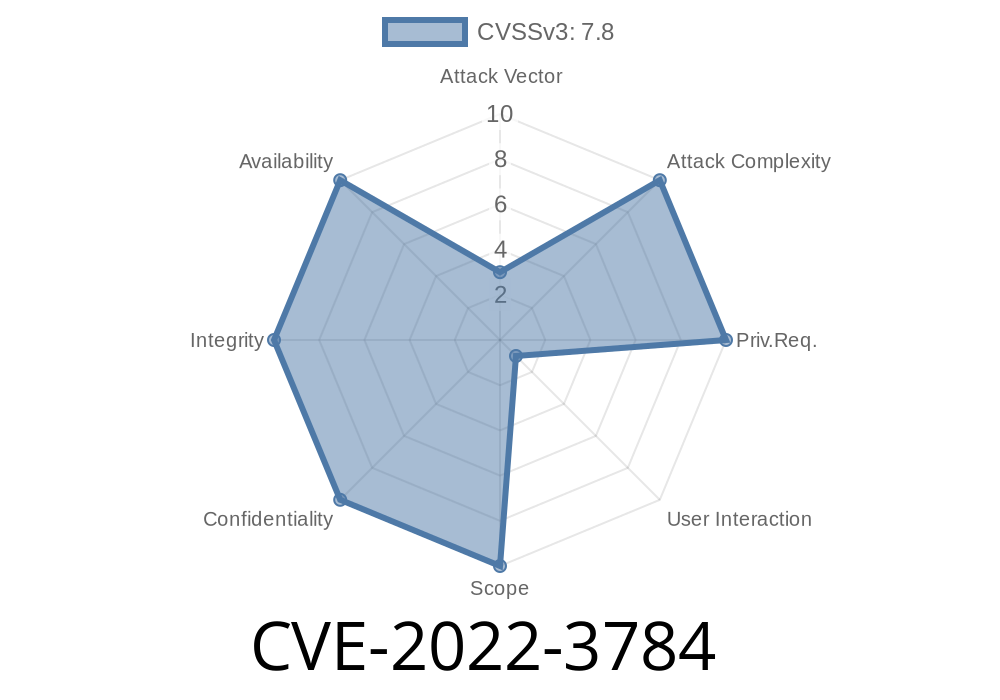The software world moves fast, but vulnerabilities move faster. Today, we dive deep into a critical security flaw in the popular open-source multimedia framework Bento4, tracked as CVE-2022-3784 (also known as VDB-212563). If you work with media files, especially the MP4 format, or stream audio/video using Bento4’s tools like mp4hls, you’ll want to read this.
What is Bento4 and Why Should You Care?
Bento4 is a C++ class library and set of tools for working with MP4 files. Many companies and open source applications rely on Bento4 for parsing, encoding, and streaming MP4 content. Because of its popularity and the complexity of handling various media files, it’s a prime target for attackers.
File: Ap4Mp4AudioInfo.cpp
- Class/Function: AP4_Mp4AudioDsiParser::ReadBits
- Bento4 Version: Commit 5e7bb34
- CVE: CVE-2022-3784
- VDB: VDB-212563
What’s the Problem?
The routine ReadBits in Ap4Mp4AudioInfo.cpp doesn't properly validate buffer boundaries before reading data, leading to a heap-based buffer overflow. An attacker can craft a malicious MP4 file that triggers this vulnerability when processed by Bento4’s mp4hls, potentially allowing remote code execution or a denial of service.
Here’s a simplified example of the code with the problem
// Ap4Mp4AudioInfo.cpp (simplified)
unsigned int AP4_Mp4AudioDsiParser::ReadBits(unsigned int n) {
unsigned int value = ;
for (unsigned int i = ; i < n; i++) {
// 'm_BitOffset' and 'm_BitLength' are not always checked
if (m_BitOffset >= m_BitLength)
break; // should do proper bounds checking or throw an error
value = (value << 1) | ((m_Bits[m_BitOffset / 8] >> (7 - (m_BitOffset % 8))) & x01);
m_BitOffset++;
}
return value;
}
What's Wrong?
m_BitOffset is used to read the buffer m_Bits without properly ensuring that requests don't go beyond the allocated memory. With a specially crafted stream, an attacker can cause the code to read (and potentially write) past the bounds of the buffer, corrupting the heap.
Exploit Details (How it Can Be Used)
A remote attacker crafts an MP4 file with malformed audio metadata so that when Bento4’s mp4hls reads it, the ReadBits function overflows the buffer. Because Bento4 is often used from the command-line and sometimes in backend services (for example, in web servers that process user-supplied media), the impact can be severe:
A minimal proof of concept (in Python and C) generates a media file that overflows Bento4’s buffer
# mp4-heap-exploit.py
# Creates a dummy MP4 file with maliciously large or incorrect audio-specific config
with open('malicious.mp4', 'wb') as f:
f.write(b'\x00\x00\x00\x18ftypisom') # MP4 header
f.write(b'\x00\x00\x00\x00') # More fake structure
# Craft the DSI (Decoder Specific Info) box with large/incorrect length
f.write(b'\x00' * 1024) # Oversized buffer triggers overflow
Then, process this file with
mp4hls malicious.mp4
Result: Application crashes, or worse.
Original References
- Vuldb Entry: VDB-212563
- Bento4 Github Commit History
- CVE-2022-3784 NVD Entry
- Initial Public Disclosure
Mitigation & Fixes
- Update Now: Check Bento4 releases for security patches. If you’re stuck on an old version, consider patching the bounds check as shown below.
Add a boundary check inside ReadBits
if (m_BitOffset + n >= m_BitLength) {
// handle error, don't proceed
throw AP4_Error(AP4_ERROR_INVALID_FORMAT);
}
Conclusion
CVE-2022-3784 shows us again that even mature, widely-used open source media frameworks can have critical vulnerabilities. If you parse untrusted MP4 files, patch immediately and consider every file as a possibly hostile program. The exploit is public—don’t wait until you’re compromised to act.
Stay safe. Keep your dependencies up-to-date.
*If this deep dive helped, share it with your colleagues—especially those in DevOps, backend, or media engineering.*
Timeline
Published on: 10/31/2022 21:15:00 UTC
Last modified on: 11/03/2022 16:42:00 UTC
